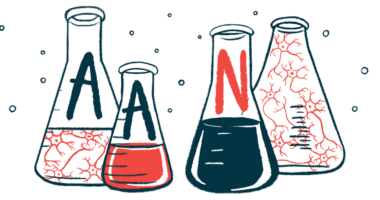Dosing Begins in Phase 2 Trial of 3K3A-APC to Protect Patients’ Neurons

A Phase 2 trial of ZZ Biotech’s investigational therapy 3K3A-APC in people with amyotrophic lateral sclerosis (ALS) has started dosing patients at its single site in Australia, the company announced in a press release.
The open-label trial (NCT05039268), underway at the Macquarie University in Sydney, aims to evaluate the safety and tolerability as well as the potential effectiveness of 3K3A-APC in 16 adults diagnosed in the last two years. It is currently enrolling eligible patients; contact information is available here.
Participants will received five doses of 3K3A-APC at either 15 or 30 mg, administered intravenously (into-the-vein) every 12 hours, and then will be followed for up to 45 days.
Its primary measure of efficacy is the change in microglial (immune cells in the brain and spinal cord) activation in the motor cortex — the brain region that is mostly affected in ALS patients. Secondary measures include changes in brain-blood barrier integrity, the activation of other immune cells in circulation, levels of inflammatory molecules, and changes in neurofilament levels.
Of note, the blood-brain barrier is a semipermeable membrane that protects the brain from the external environment, and neurofilaments are proteins found in neurons that are released into the bloodstream and other body fluids when nerve cells become damaged.
The human activated protein C (APC) is regarded as a promising therapeutic approach for neurological diseases due to its anti-inflammatory and neuroprotective activities. Because it also has anti-coagulant properties, however, the use of APC often results in bleeding, a major unwanted side effect that has hampered its development as a therapy.
3K3A-APC is a lab-made version of APC that retains the original protein’s neuroprotective functions, while lacking its anti-coagulant properties.
Originally developed as a treatment for stroke, results of a Phase 2 trial (NCT02222714) showed that 3K3A-APC protects multiple cell types in the brain and could have a therapeutic effect in ALS.
“3K3A-APC has shown potent anti-inflammatory effects, along with repairing the blood-brain barrier, both of which are challenges in ALS,” said Dominic Rowe, MD, PhD, who is leading the trial at the Macquarie University Centre for Motor Neuron Disease Research.
“I am extremely excited to test this interesting experimental drug for the first time in ALS patients,” Rowe, a neurologist, added. “Currently, we can’t cure ALS, and we can’t reverse it. But with early diagnosis, and if we can dramatically slow the progression of disease, I firmly believe we can turn this disease around.”
The trial is being supported by an AU$1 million (around $700,000) donation from the Firies Climb for Motor Neurone Disease, an organization created by firefighter Matt Pridham after his best friend was diagnosed with the condition.
“We have been developing 3K3A-APC for some time now, and we are making great strides in studying it for stroke,” said Kent Pryor, ZZ Biotech’s CEO. “The extraordinary generosity of the Firies Climb for Motor Neurone Disease and their donors has allowed us to initiate a clinical program in ALS with 3K3A-APC, another area of great unmet medical need.”







